Molotov: 6 facts about Stalin’s most devoted comrade who lived to almost 100
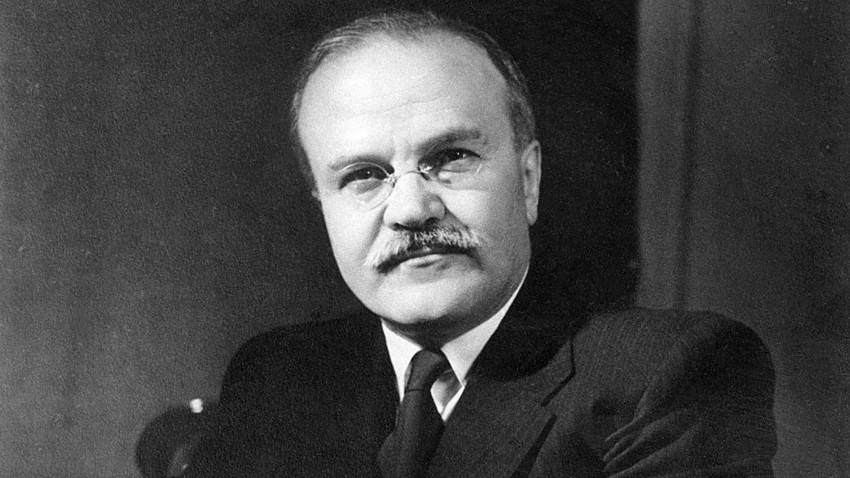
Stalin's faithful ally, Molotov outlived almost all of his friends and enemies, dying just years before the USSR collapsed
Getty Images1. From village to the Kremlin
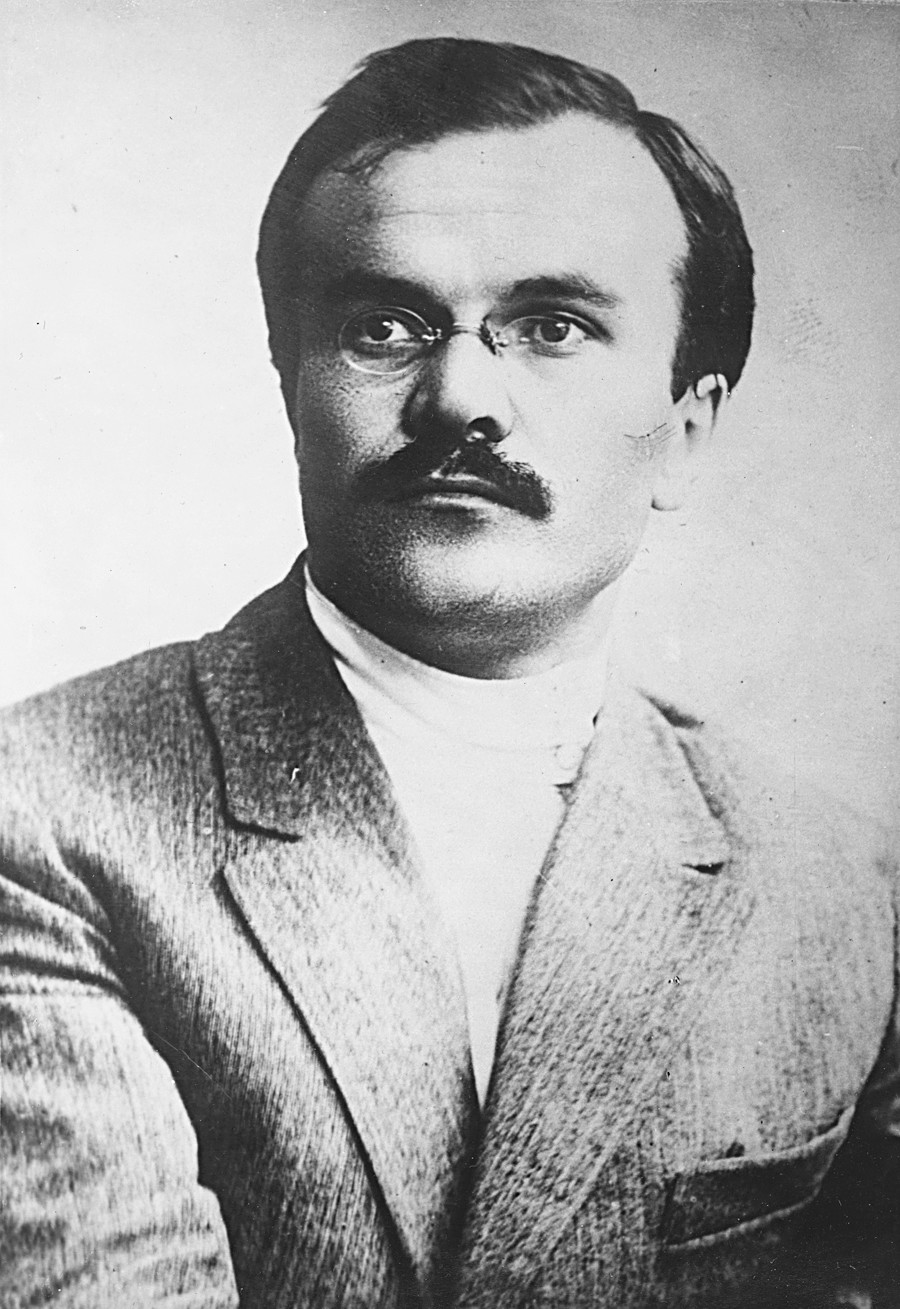
Young Molotov during 1917 revolution.
Getty ImagesMolotov's birth name was
His first friend among prominent Bolshevik leaders was Joseph Stalin, and this relationship defined the rest of Molotov’s life. No matter what office he held, Molotov was devoted and loyal.
2. Adored Stalin
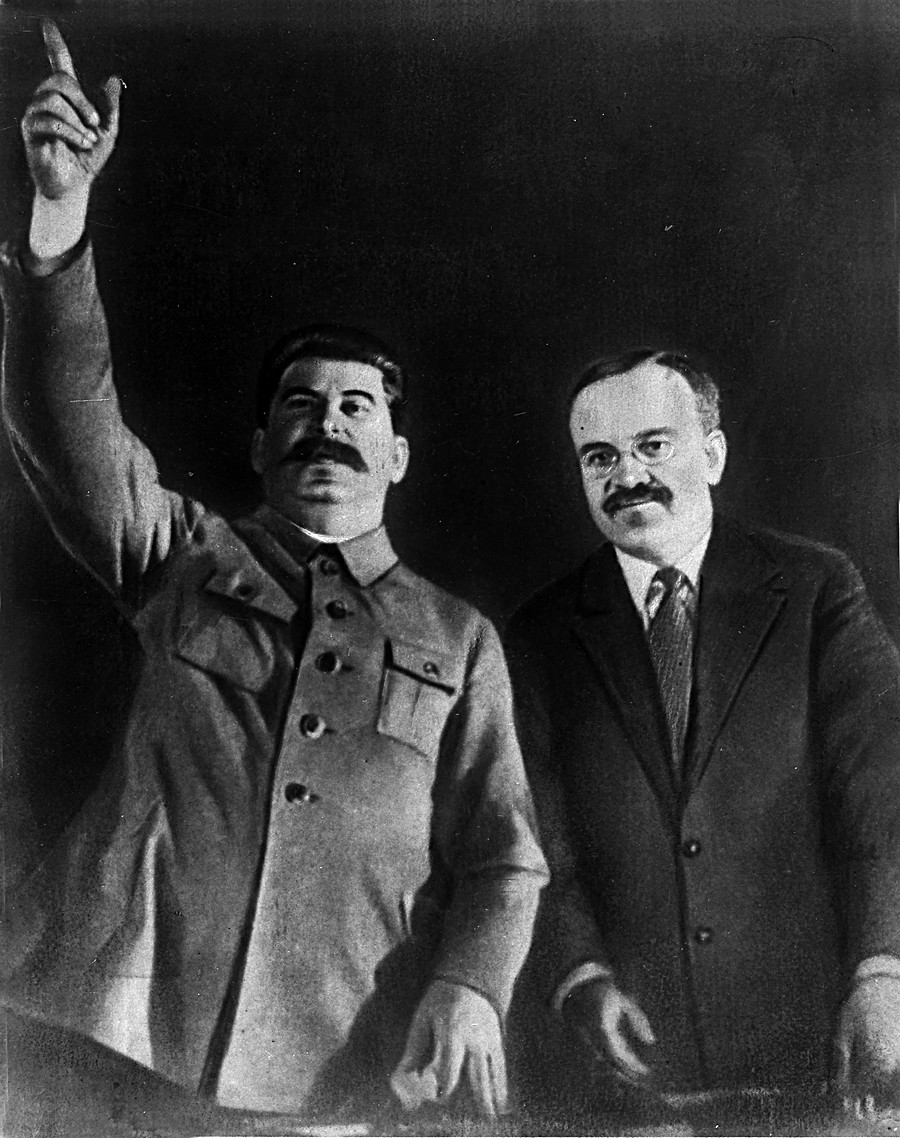
Stalin and Molotov attend the opening ceremony of Moscow Underground. 1935. Moscow. USSR.
Global Look PressAs Soviet author Konstantin Simonov recalled, “Molotov was the only man who had tears in his eyes while speaking at Stalin’s funeral… even though he had more reasons to feel relieved at his death than anyone.”
In the late 1940s, Molotov, a diehard Stalinist, fell into disgrace. He was fired from his foreign minister post, Stalin ordered the arrest of his wife Polina Zhemchuzhina and then exiled her to Kazakhstan for being a “Zionist spy,” (which she wasn’t).
Molotov loved his wife but remained silent and loyal; even such betrayal didn’t make him change his attitude towards Stalin. His biographer, Valentin Berezhkov, wrote: “Molotov used to make only three toasts: 'To Stalin! To Polina! To Communism!' When asked, 'Why Stalin? He arrested Polina, and almost destroyed you?' Molotov answered: 'He was a great man.'"
3. Sent numerous people to death
During Stalin’s Great Purge in the late 1930s, extrajudicial sentences were common, and Molotov participated to a great extent. His signature is on 372 of “Stalin's shooting lists” – lists of people sentenced to (usually) execution by firing squad, as well as the imprisonment of key Soviet leaders without trial. Even Stalin signed fewer lists (357).
Later when retired, Molotov admitted that some of the people executed were innocent. “Of course, we might have overdone things. It would be absurd to say Stalin knew nothing about it, but it would be wrong to say he’s the only one to blame. We lacked control over the security services,” he said to a journalist.
4. Addressed the nation when the war began
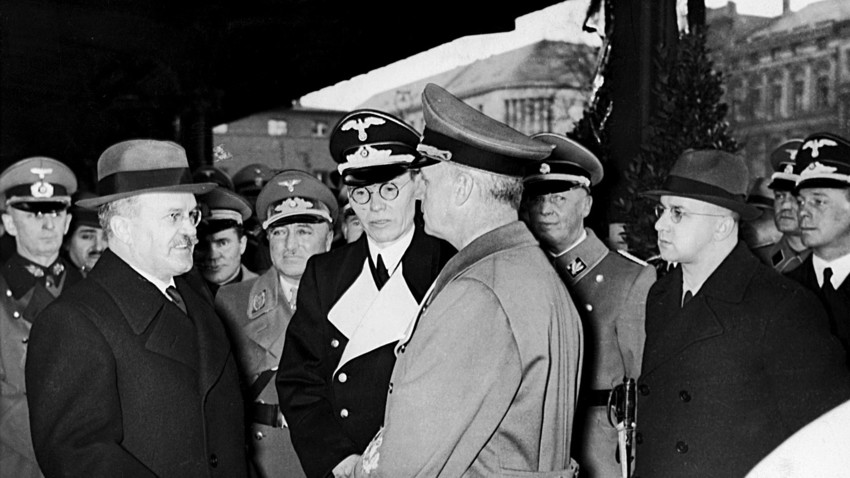
Molotov talks to Reichs Foreign Minister Joachim von Ribbentrop before Molotov's departure from Berlin on Nov. 14, 1940. The Soviet-German friendship lasted no longer than 2 years.
APThe deal with Hitler, however, didn’t work out well, and two years later on June 22, 1941, Germany invaded the USSR. Thus began the Great Patriotic War. In the first day of the war, which took the Red Army by surprise and led to serious defeats, Molotov was the one who spoke to the Soviet people on behalf of the government – Stalin refused to do it.
“Ours is a righteous cause. The enemy shall be defeated. Victory will be ours,” Molotov concluded his speech. And that’s what happened – almost four years and millions of people
5. Lost everything
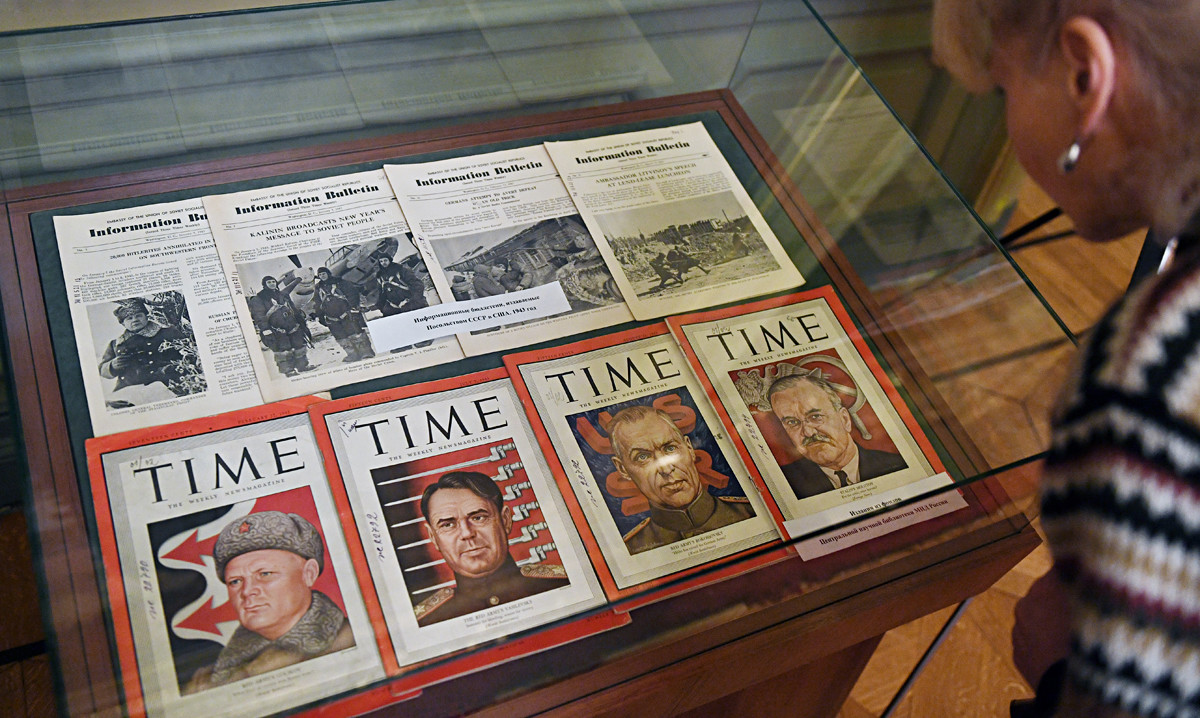
An exhibition devoted to the 75th anniversary of the rout of Nazi troops in the Battle of Stalingrad, with Time's cover with Molotov on it. History didn't forget Molotov - but his compatriots did.
Maksim Blinov/SputnikOnly 23 years later, in 1984, Molotov was rehabilitated and once again was granted membership in the Party. People used to joke, mocking the Soviet gerontocracy, that then Soviet leader Konstantin Chernenko, who was 73 years old, saw the 94-year-old Molotov as his successor. In reality, Molotov died two years later, in 1986, just four years before turning 100.
6. An international brand
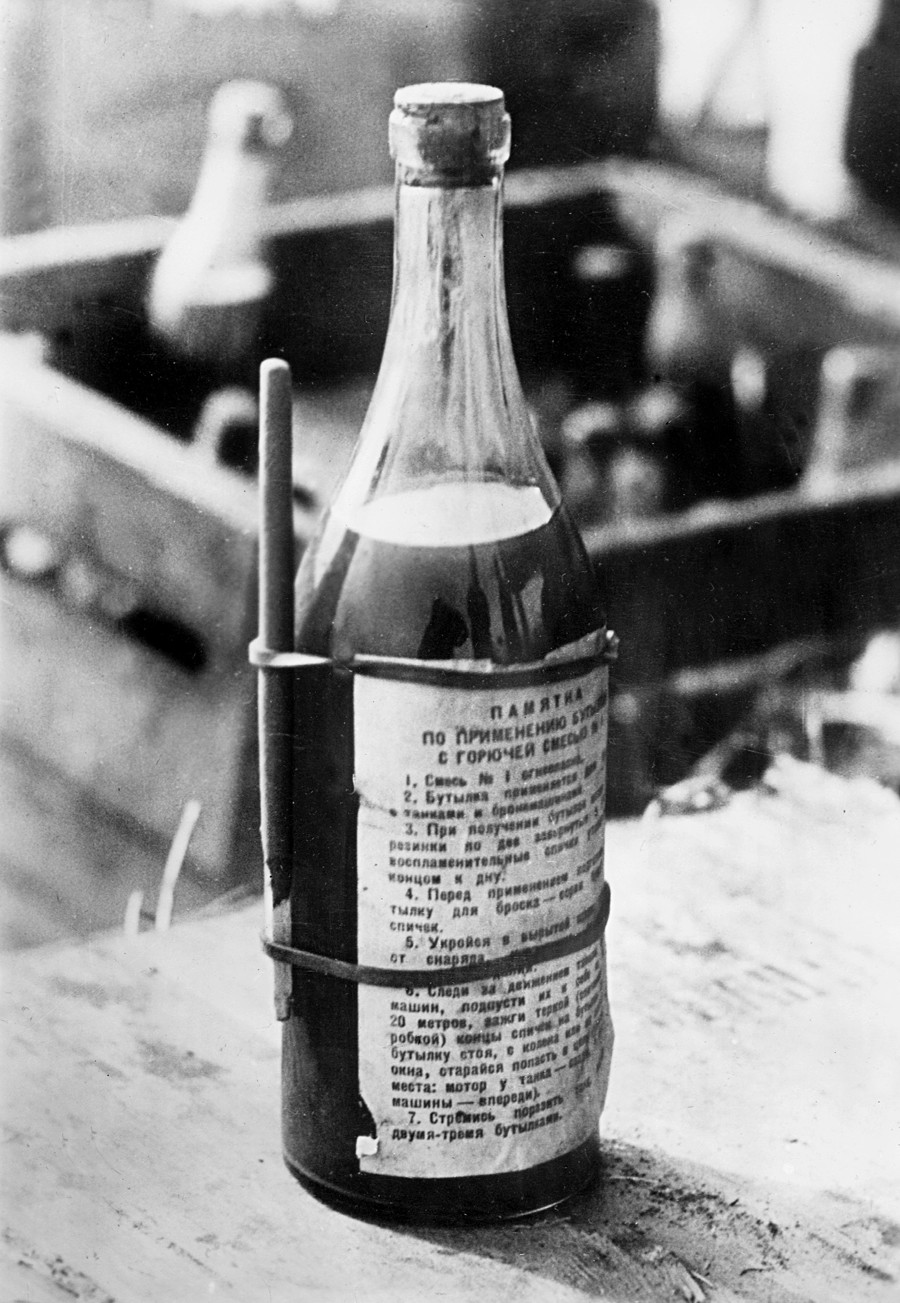
Molotov cocktail - a weapon Molotov gave his name to unintentionally - in fact, his enemies named it after him with irony.
Global Look PressDuring the Winter War of 1939-1940 (between the USSR and Finland), the Finns used petrol bombs to torch Soviet tanks and trucks. These exploding bottles were filled with a mix of ethanol, tar
Molotov had several other things named after him. For instance, from 1940 to 1957 the city of Perm (1400 km east of Moscow) was named in his honor.
Today, people primarily remember Molotov’s name in reference to the cocktail, but there are also music bands such as Molotov (Mexican rap-rock), and Molotov Solution (American deathcore). While it's unlikely that Stalin’s minister would appreciate such use of his name, these bands, just like he was, are pretty brutal.
If you are willing to learn more
If using any of Russia Beyond's content, partly or in full, always provide an active hyperlink to the original material.
Subscribe
to our newsletter!
Get the week's best stories straight to your inbox